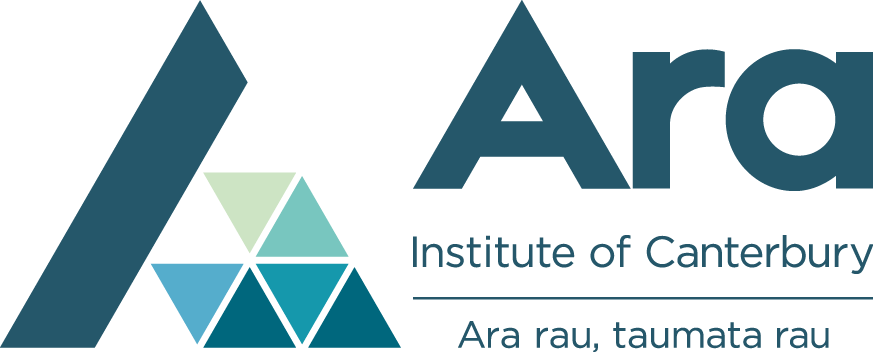About Bachelor Of Construction (with Specialisations In Construction Management And Quantity Surveying) in Ara Institute of Canterbury
Become a sought-after professional in the construction industry.
The Bachelor of Construction is designed to equip you with the skills and knowledge needed to work at a high level in the construction industry, as a leader who is able to innovate and contribute to new ways of creating the built environment.
The programme starts with an introduction to the knowledge, skills, attributes and academic abilities required of a construction manager or quantity surveyor. You'll gain discipline-specific skills and knowledge, starting with a focus on small domestic buildings then moving on to low-rise and large commercial construction, then heavily serviced, multifaceted projects.
Your year-two project work and assessments will require problem solving, independent research skills and application of cultural approaches and aspects of sustainability. In the third year you'll be required to source and organise technical, project and academic research information, and evaluate, critique and propose well-rationalised solutions.
Career opportunities
This programme leads to a wide variety of middle-management employment opportunities in construction management or quantity surveying.
Depending on your choice of specialisation, you could work as a construction manager, residential or commercial construction site/project manager, contracts supervisor/manager, local or central government building inspector, construction management academic, quantity surveyor, registered quantity surveyor (with relevant experience), estimator/cost planner, quantity surveying consultant/contractor, procurement manager, construction cost manager or quantity surveying academic.
Study pathways
As a graduate of this programme you can pursue further tertiary study at post graduate level in the field of construction management or quantity surveying.
Other pathways may include higher degrees in construction, project management or building science.
Recommended school subjects
- Maths (Algebra)
- English-rich subjects
- English
Academic requirements
-
New Zealand University Entrance:
- NCEA Level 3 (60 credits at level 3 and 20 credits at level 2 or higher) which must include
- 14 credits at Level 3 in each of three approved subjects*
as well as
- Literacy* - 10 credits at Level 2 or above, made up of 5 credits in reading, 5 credits in writing,
and
- Mathematics - 12 credits in Maths at Level 2 or above (excluding Statistics).
or
New Zealand Certificate in Study and Career Preparation (Level 4) Ara Construction and Architectural Studies Pathway or equivalent
Note: If you have undertaken examinations other than NCEA (e.g. International Baccalaureate, Cambridge Examination), Ara will assess your qualification for academic entry equivalency.
* NZQA approved subjects: see http://www.nzqa.govt.nz/qualifications-standards/awards/university-entrance/
Alternative requirements
-
Still want to study but don't meet the Academic Requirements?
If you show that you have equivalent skills for tertiary study gained through study, work and/or life experience, you may be able to gain alternative entry.
Note: The number of courses you have to complete for this qualification may be reduced where you have relevant credits from previous study, or evidence of similar learning or experience in the workplace. Contact Ara for advice.
Additional requirements
English requirements
-
What if English is not my first Language?
If English is not your first language, we want to make sure that you will be successful in your chosen programme of study. Please provide a result from a test or qualification on the acceptable alternatives English Proficiency Outcomes Chart .
or
- If you are a New Zealand Citizen or Permanent Resident, complete an Admission and Enrolment form and Ara will contact you regarding a free assessment.
- If you are not a New Zealand Citizen or Permanent resident, book an IELTS, Pearson or other test through the Ara Examination Centre or in your home country.
IELTS scores used must be taken from a single IELTS test report form and are valid for two years from the date of the test.
Ara Institute of Canterbury Tuition Fees
| Courses |
Duration |
Tuition Fees |
| Engineering (2 Courses) |
2 Year - 3 Year |
NZD 20860 - NZD 21280 |
| Science (1 Courses) |
1 year |
NZD 21280 |
| Arts (1 Courses) |
3 year |
NZD 21280 |
| Hospitality & Tourism (3 Courses) |
1 Year - 2 Year |
NZD 19150 - NZD 19500 |
| Information Technology (IT) (1 Courses) |
1 year |
NZD 19630 |
| Banking & Finance (1 Courses) |
1 year |
NZD 19500 |
| Management (6 Courses) |
1 year |
NZD 18400 - NZD 20090 |
New Zealand Living Expenses
You'll require between $20,000 and $25,000 a year ($380–480 per week) for housing/rent, food, transportation, phone bills, internet usage, and entertainment, in addition to your tuition and insurance fees. The average living expense will be the same for everyone, regardless of their tuition or course price. Please keep in mind that these are only suggestions; the Immigration New Zealand requirement is $15,000 per year including return travel or an additional $2,000.
| General expenses |
Cost
(in NZ dollars) |
| Rent (per month) |
$800–$950 |
| Groceries (per week) |
$100–$150 |
| Gym membership (per year) |
$300 |
| Entertainment (per week) |
$50 |
| Milk (per litre) |
$3 |
| Coca Cola (per can) |
$2 |
| Cup of Coffee |
$3–$5 |
| Lunch from University food hall or campus café |
$7–$12 |
| Local calls made from a cell-phone |
$0.50–$1.50 |
| Taxi - 5 km ride |
$10–$12 |
| Movie ticket |
$10–$14 |
| Visit to doctor |
$45–$85 |

